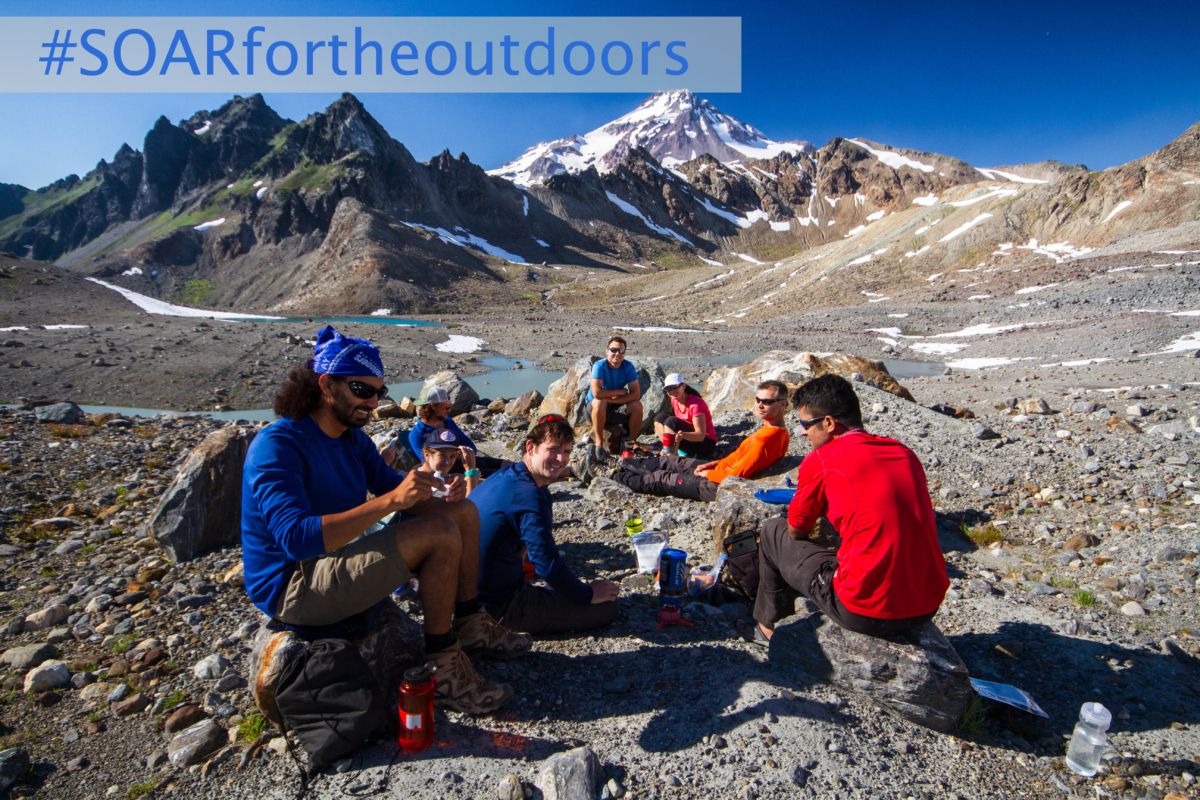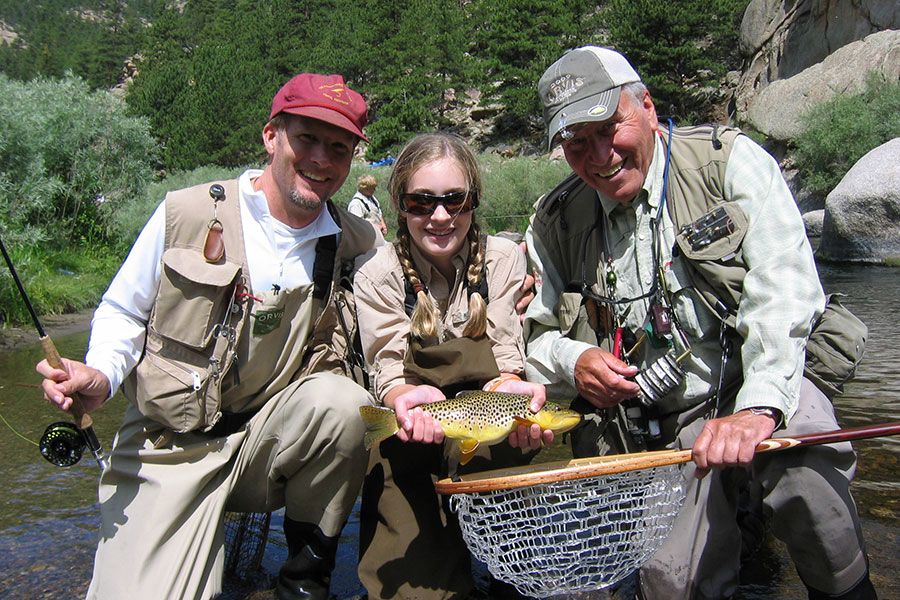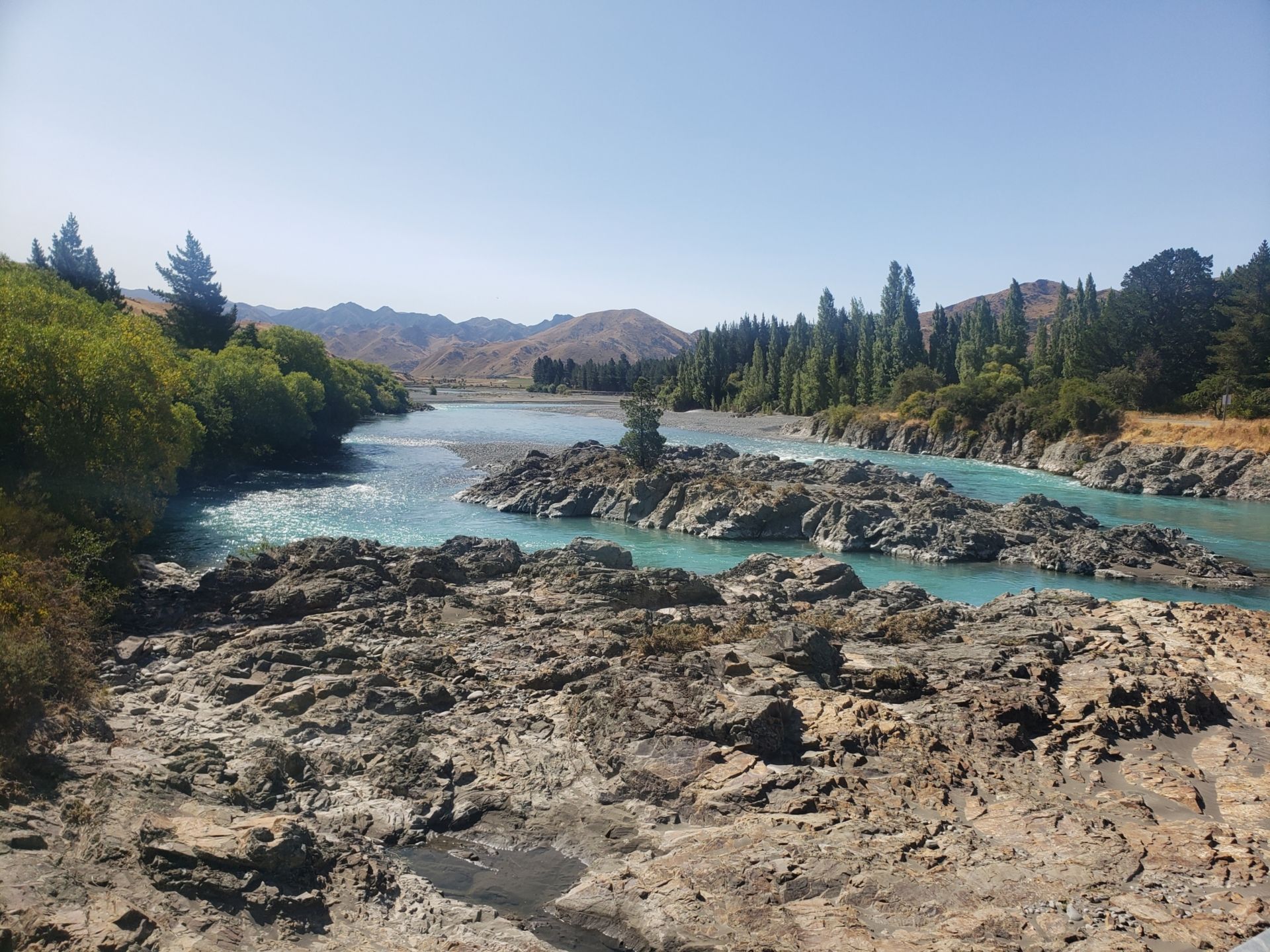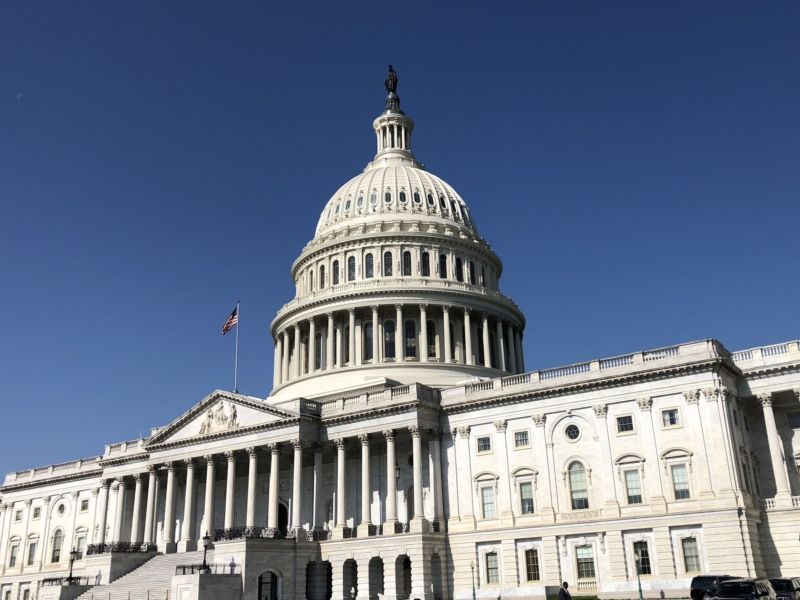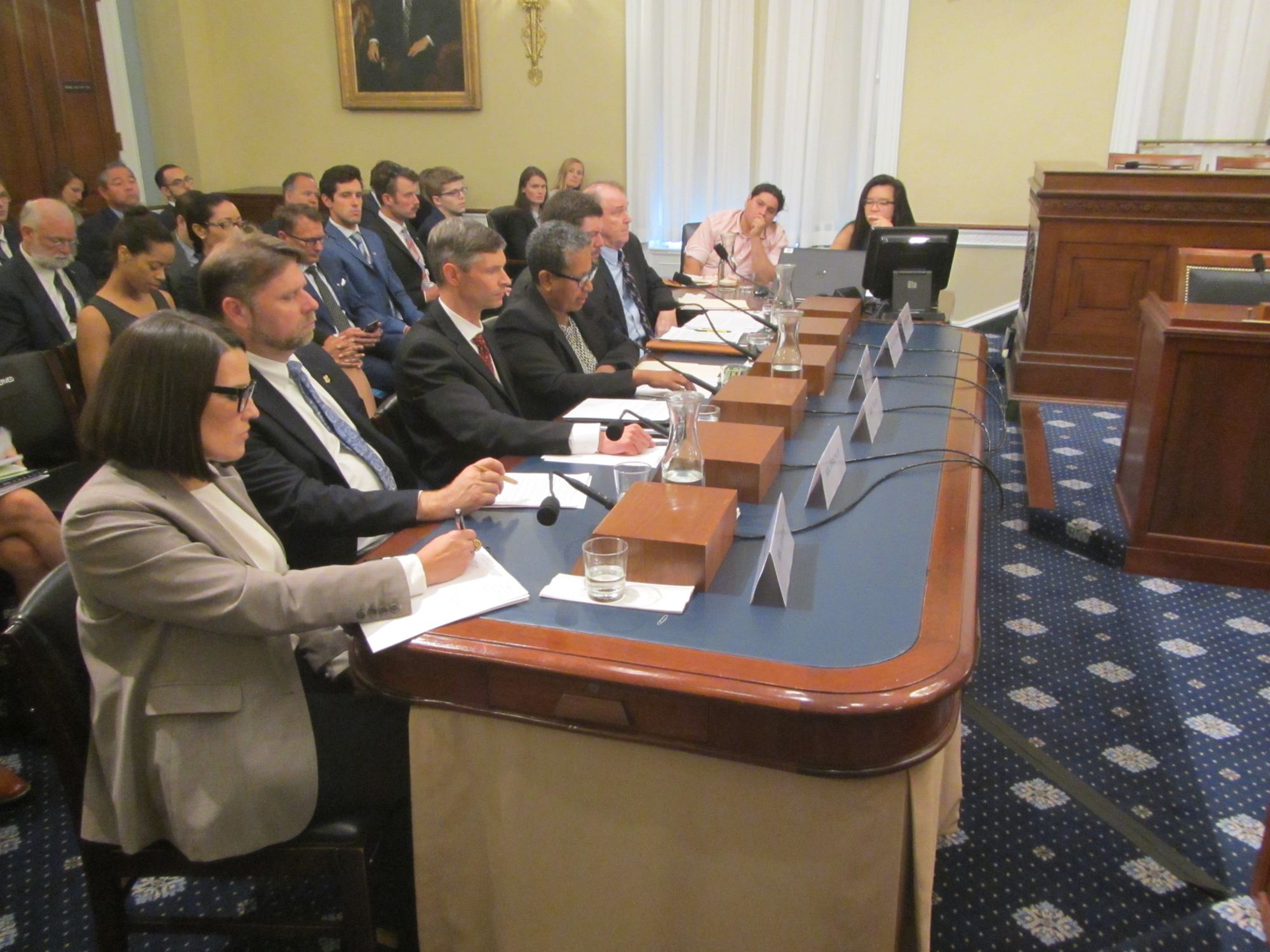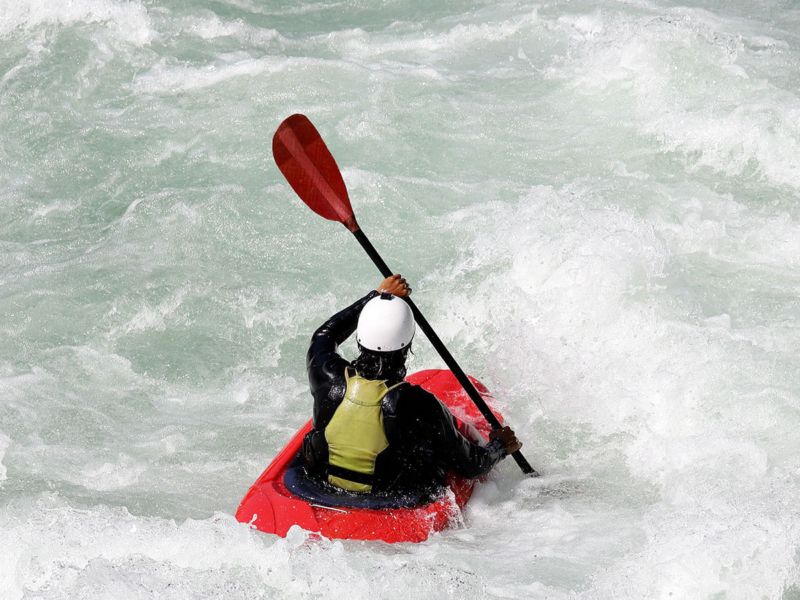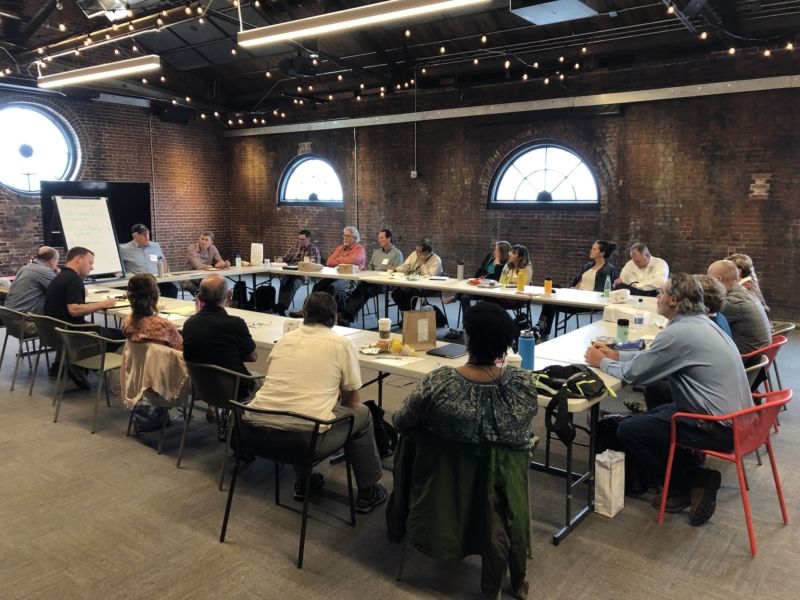By Paul Sanford, The Wilderness Society
The Coalition for Outdoor Access’ highest policy priority is passage of the Simplifying Outdoor Access for Recreation Act, or SOAR Act [S. 1665 and H.R. 3879]. The SOAR Act would improve the operation of the special recreation permitting system so that outfitters, guides and other outdoor leaders can help more people experience the outdoors.
The SOAR Act is the product of more than five years of collaboration between a broad community of stakeholders and Members of Congress. This article will briefly review the history of this legislation.
Early Days
Several members of the Coalition for Outdoor Access Steering Committee were working together to improve the outfitter-guide permitting system before the formation of the coalition. The Mountaineers, the Association of Outdoor Recreation and Education and the Wilderness Society developed their first policy proposal in the Spring of 2014 and met with Members of Congress to explore the possibility of introducing legislation to increase access.
Formation of the Coalition
In the summer of 2014, it became apparent that a more inclusive coalition would be needed to improve the operation of the outfitter-guide permitting system. This led to the formation of the Outdoor Access Working Group, which later became the Coalition for Outdoor Access. The Working Group held its first meetings in September 2014.
This more inclusive coalition began working with Senator Martin Heinrich in 2015 to develop legislation that would improve the permitting system. The Coalition also continued its work with the federal agencies throughout this period, advocating for administrative changes that would improve access. The Outdoor Access Working Group changed its name to the Coalition for Outdoor Access in 2017.
The Guides and Outfitters Act
In 2017, America Outdoors Association, the trade association for outfitters and guides, put forward another bill called the Guides and Outfitters Act or GO Act. The GO Act contained language that would improve the permitting system. However, the bill favored for-profit outfitter-guides over other outdoor leaders. Consequently, the Coalition for Outdoor Access did not support the bill as it was introduced. The GO Act passed the House of Representatives in 2017 but did not move forward in the Senate.
The Public Lands Recreational Opportunities Improvement Act
With COA’s assistance, Senator Heinrich completed work on his bill in the Spring of 2018 and began efforts to recruit a Republican co-sponsor for the bill. He successfully recruited Senator Shelley Moore Capito and introduced the Public Lands Recreational Opportunities Improvement Act (PLROIA) in the Senate in September 2018. Unfortunately, with very little time left in the legislative session, Senator Heinrich and COA recognized that it would be difficult to move the bill before the end of the Congressional session in December 2018.
Bill Merger
As a result of the introduction of PLROIA, there were two competing permitting bills introduced in the 2017-18 legislative session. PLROIA and the GO Act had some similarities, but also had some key differences. Because of these differences, support for the two bills was fragmented in a way that reduced the likelihood that either bill would pass.
In an effort to get all stakeholders pushing in the same direction, America Outdoors Association and the Coalition for Outdoor Access decided to develop a combined bill that would meet the needs of all stakeholders. The bill merger process began in the Fall of 2018 and continued into Winter 2019 with the support of the lead sponsors, Senators Heinrich and Capito.
The SOAR Act
The SOAR Act is the result of the merger of the GO Act and PLROIA. Senators Heinrich and Capito introduced the SOAR Act in the Senate on May 23, 2019 with twelve additional original co-sponsors. Representatives Deb Haalandand John Curtis introduced identical companion legislation in the House of Representatives on July 23, 2019 with eight additional original co-sponsors.
The House Natural Resources Committee held a legislative hearing on the SOAR Act on September 19, 2019. The Senate Energy and Natural Resources Committee held its own legislative hearing on October 31, 2019.
Broad Support
The combination of the two bills achieved the desired result. The SOAR Act is supported by more than 90 organizations from across the recreation spectrum. Supporting organizations include:
Aerie Backcountry Medicine
Alaska Alpine Adventures
Alaska Guide Collective
Alpenglow Expeditions
America Outdoors Association
America Walks
American Alpine Club
American Alpine Institute
American Fly Fishing Trade Association
American Hiking Society
American Horse Council
American Institute for Avalanche Research and Education
American Mountain Guides Association
American Sportfishing Association
Angler’s Covey
Appalachian Mountain Guides
Archery Trade Association
Association for Experiential Education
Association of Marina Industries
Association of Outdoor Recreation and Education
Avid4 Adventure
Big City Mountaineers
Chicks Climbing and Skiing
Choose Outdoors
Colorado Mountain School
Colorado River Outfitters Association
Colorado Wilderness Corporate and Teams
Colorado Wilderness Rides and Guides
Dude Ranchers Association
Estes Park Rock Climbing
Exum Mountain Guides
Grand Canyon River Outfitters Association
Holiday River Expeditions
Idaho Mountain Guides
Idaho Outfitters and Guides Association
International Snowmobile Manufacturers Association
Kent Mountain Adventure Center
Las Cruces Green Chamber of Commerce
Los Alamos Mountaineers
Mazamas
Middle Fork Outfitters Association
Moab Desert Adventures
Montana Alpine Guides
Montana Mountaineering Association
Montana Outfitters and Guides Association
Montana Wilderness School
Mountain Skills Rock Guides
Nantahala Outdoor Center
National Association of RV Parks & Campgrounds
National Association of Therapeutic Schools and Programs
National Marine Manufacturers Association
National Outdoor Leadership School
National Shooting Sports Foundation
New Mexico Council of Guides and Outfitters
New Mexico Wild
New River Mountain Guides
No Barriers USA
North Carolina Outward Bound School
Open Lands Consulting LLC
Oregon Outfitters and Guides Association
Outdoor Alliance
Outdoor Industry Association
Outdoor Recreation Roundtable
Outdoor Research
Outward Bound USA
Red River Adventures
Red Rock Climbing Guides
REI
Rising Tide Associates
RV Dealers Association
RV Industry Association
Sawtooth Mountain Guides
San Luis Valley Great Outdoors
Santa Fe Climbing Center
Seneca Rocks Climbing School
Sierra Mountain Center
Sierra Mountain Guides
Sierra Mountaineering International
Siskiyou Outdoor Recreation Alliance
Specialty Equipment Market Association
Suntoucher Mountain Guides
The Mountaineers
The Mountain Guides
The Wilderness Society
Transforming Youth Outdoors
Utah Guides and Outfitters Association
Vetta Mountain Guides
Washington Trails Association
West Virginia Professional River Outfitters
Western River Expeditions
Western Spirit Cycling
Wilderness Education Association
Worldwide Outfitters and Guides Association
Wyoming Outfitters and Guides Association
YMCA of Greater Seattle
YMCA of Los Angeles
